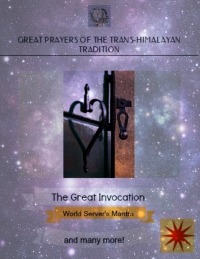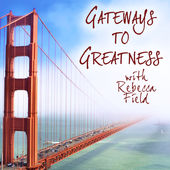
The Fourth Principle of the Earth Charter
Democracy, Non-Violence, and Peace
The values of The Earth Charter make it significant. Members of the United Nations have access to the important influences shaping ideas, cultures and the values of people all over the world.
As a collective unit the values that people most strongly identify with are: science international law, the wisdom of the great world religions and philosophical traditions and ideas that have come out of UN summits like sustainability, the eradication of poverty and ending hunger.
The fourth principle of the Earth Charter brings out the most noble and sought after ideas humanity holds about democracy, non-violence and peace. They follow as written in the charter:
Strengthen democratic institutions at all levels, and provide transparency and accountability in governance, inclusive participation in decision making, and access to justice.
• Uphold the right of everyone to receive clear and timely information on environmental matters and all development plans and activities which are likely to affect them or in which they have an interest.• Support local, regional and global civil society, and promote the meaningful participation of all interested individuals and organizations in decision making.
• Protect the rights to freedom of opinion, expression, peaceful assembly, association and dissent.
• Institute effective and efficient access to administrative and independent judicial procedures, including remedies and redress for environmental harm and the threat of such harm.
• Eliminate corruption in all public and private institutions.
Strengthen local communities, enabling them to care for their environments, and assign environmental responsibilities to the levels of government where they can be carried out most effectively.
Integrate into formal education and life-long learning the knowledge, values, and skills needed for a sustainable way of life.
• Provide all, especially children and youth, with educational opportunities that empower them to contribute actively to sustainable development.• Promote the contribution of the arts and humanities as well as the sciences in sustainability education.
• Enhance the role of the mass media in raising awareness of ecological and social challenges.
• Recognize the importance of moral and spiritual education for sustainable living.
Treat all living beings with respect and consideration.
• Prevent cruelty to animals kept in human societies and protect them from suffering.
• Protect wild animals from methods of hunting, trapping, and fishing that cause extreme, prolonged or avoidable suffering.
• Avoid or eliminate to the full extent possible the taking or destruction of non-targeted species
Promote a culture of tolerance, nonviolence and peace.
• Encourage and support mutual understanding, solidarity, and cooperation among all peoples and within and among nations.
• Implement comprehensive strategies to prevent violent conflict and use of collaborative problem solving to manage and resolve environmental conflicts and other disputes.
• Demilitarize national security systems to the level of a non-provocative defense posture, and convert military resources to peaceful purposes, including ecological restoration.
• Eliminate nuclear, biological, and toxic weapons and other weapons of mass destruction.
• Ensure that the use of orbital and outer space supports environmental protection and peace.
• Recognize that peace is the wholeness created by right relationships with oneself, other persons, other cultures, other life, the Earth, and the larger whole of life of which we all are a part.
The Charter is very idealistic and we live by ideals! Hopefully in 500 to 1,000 years these goals will have been realized.
The simple fact is that we all hold a common destiny and we need each other to reach the shore we have been looking for. To arrive at that shore, our commitment and intention, our love, wisdom and experience are necessary if we are to reach the objectives set out here.
May we live our lives in a way that is consistent with the light that shines from the Charter!

Rebecca A Field
© All rights reserved











Thanks Rebecca, this would be a great way to live. I don’t like the time line of 1,000 years. My new book “Separation” addresses the problem and provides a blueprint for all to follow. Wish I knew someone at the UN who could support its publication.
Best regards, Jack Bolger
Dear Jack,
It’s good to hear from you. I am so sorry, I didn’t realize you had written another book.
Please tell me where “Separation” is available.
I appreciate your comment. I understand, 1,000 years is a long time and we won’t
be here to see it–or will we? For sure Rome wasn’t built in a day.
All best wishes,
Rebecca
Thank you Rebecca for this great article. I absolutely agree. Living on Earth as a great body, and remembering of its sustainable development, we are also aware of the individual human body and its sustainable development. Both of these perspectives are so important in education.
best regards,
Ewa